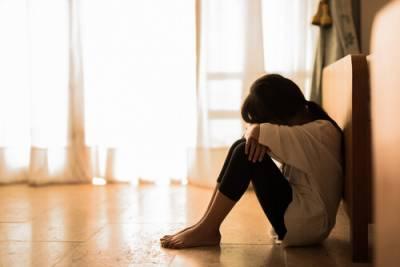Orders of Protection: Leaving an Abusive Marriage in Illinois
 According to the National Coalition Against Domestic Violence, approximately 20 people are physically abused by an intimate partner every minute. Statistics gathered by Illinois domestic violence advocacy organizations reveal that domestic violence also continues to rise in the state of Illinois, which saw a 40 percent increase in requests for services last year. More than 40 percent of women in Illinois and 25 percent of men say they are survivors of domestic violence.
According to the National Coalition Against Domestic Violence, approximately 20 people are physically abused by an intimate partner every minute. Statistics gathered by Illinois domestic violence advocacy organizations reveal that domestic violence also continues to rise in the state of Illinois, which saw a 40 percent increase in requests for services last year. More than 40 percent of women in Illinois and 25 percent of men say they are survivors of domestic violence.
If you are a domestic violence survivor who is seeking to leave your abusive partner, it is imperative for your safety and your children’s safety to take the necessary steps to protect yourself. A Kane County divorce attorney can help. One of the first things your attorney can do is help you obtain a protective order against your abuser.
Emergency Orders
When the survivor is facing an imminent risk of harm, they can file for an emergency order of protection. In these situations, the alleged abuser is not notified of the requested hearing or given a chance to object to the petitioner’s request in order for the court to issue the order. Typically, the emergency order will be in effect for 14 to 21 days, but when the court issues the emergency order, it also schedules a hearing for a plenary (long-term) order before that expiration date. If the hearing cannot be scheduled before the expiration date, the court will extend the emergency order’s date.
Plenary Orders
When the hearing for the plenary order is scheduled, the court will send a notification of the hearing to the alleged abuser. Because a plenary order can last years, the court makes sure that both parties are given the opportunity to present evidence as to why the order should or should not be granted. If the order is granted, it will typically be in place for a two-year period, however, the court will extend it longer if evidence warrants that need.
Order of Protection Conditions
There are a variety of conditions the court can include in an order of protection, including:
-
Require the abuser to stay away from the petitioner’s (the party who requested the order of protection) home, workplace, and family
-
Requires the abuser to have no contact with the petitioner, including phone calls, text messages, emails, letters, or through a third party
-
Prohibit the abuser from showing up at the school, daycare, or babysitters of any children the couple has
-
Issue decisions regarding child custody, parenting time, and child support
-
Order the abuser to pay for any expenses related to the abuse, including property damage and medical bills
-
Order the abuser to attend anger management/counseling
-
Order the abuser to refrain from alcohol and/or drug use
Contact a St. Charles. IL Divorce Attorney for Legal Assistance
If you are in an abusive marriage and would like to take steps to leave your abuser, call Weiler & Associates, Inc. at 630-331-9110 to schedule a confidential consultation with a dedicated Kane County domestic violence lawyer.
Sources:
https://illinoisattorneygeneral.gov/women/ordersofprotection.html
https://www.wqad.com/article/news/crime/domestic-violence-numbers-up-in-iowa-and-illinois/526-82adfecf-e02a-4cbf-b499-ef09e13fc324
https://icjia.illinois.gov/researchhub/articles/domestic-violence-trends-in-illinois-victimization-characteristics-help-seeking-and-service-utilization






 630-331-9110
630-331-9110
 630-587-5680
630-587-5680 2445 Dean Street, Suite G
2445 Dean Street, Suite G



